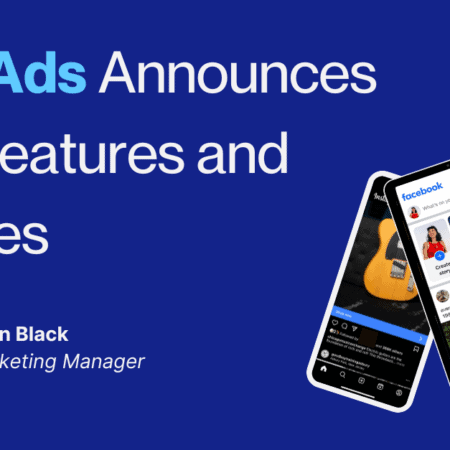The COVID-19 pandemic stretched the healthcare system to its limits in 2020 and 2021. It also radically changed healthcare delivery models. As people around the world sought to limit in-person activities, the use of telehealth soared, and direct-to-consumer digital health brands saw a massive uptick in utilization and investment.
But as life gets back to normal for many people, those same brands now face an uncertain future. Growth in the field—both usage and funding—may begin to slow.
If digital health brands want to maintain momentum, they must invest more capital and thought into digital marketing efforts. The best digital health marketing strategies achieve these goals:
- Create a repeatable process of revenue generation that adds value to the brand
- Build direct relationships with patients, increasing brand loyalty
- Support new product launches with omnichannel campaigns
- Generate next-best-action analytics to drive growth strategy
As a marketing leader for a digital health brand, it’s up to you to invest your marketing dollars wisely to achieve the right impact and help secure your brand’s position in the market. Here are five things digital health companies do to capture a competitive edge with their digital marketing.
1. Establish Brand Authority
Brand authority is a key driver to becoming a household name in any industry. This is especially true if you compete for market and attention share in the digital health space.
Studies show more and more patients choose their healthcare solutions by first searching the internet for services and products to meet their needs. High-quality, trusted content is the foundational element that enables digital health solutions to evolve from technology platforms to full-service patient resources.
Your content marketing strategy must be robust, consisting of diversified formats distributed across multiple channels. At least 80% of your marketing content should align with the values of your core digital health offering and the reasons customers should do business with you. Brands that deliver trusted medical information personalized to patient needs not only generate more leads, but also make a tangible impact on care. But establishing your digital health brand’s authority is even more challenging in the wake of COVID-19.
The prevalence of health misinformation that began to spread throughout the pandemic (and continues to circulate today) has eroded public trust in medical information shared online. It’s also sparked legislative action, such as the Health Misinformation Act of 2021. Digital health marketers therefore face a shifting landscape of content regulations as digital platforms react to wider industry regulations.
It is critical to align your brand with quality content and establish your voice as a trustworthy health authority.
2. Invest in Programmatic Advertising
Programmatic advertising is one of the greatest opportunities for digital health brands. Using broad, population-level insights, you can predict and deliver relevant content to patients and clients when they need it most while respecting their privacy and remaining HIPAA-compliant.
Programmatic advertising offers a more intentional and targeted approach to buying ad space across thousands of digital properties and demand-side platforms. By leveraging user behavior creatively, you can target audiences with any one or a combination of these tactics:
- Audience targets (gender, income, age, interests, etc.)
- Geotargeting (location, region)
- Cross-device targeting (laptop, mobile, tablet)
- Contextual targeting (placing relevant ads alongside related content)
- Behavioral targeting (website interactions, active subscriptions, shopping habits, product interests, etc.)
For example, say you wanted to advertise a digital mental health counseling service. With programmatic advertising, you could evaluate the ten most popular self-help podcasts currently streaming on Sirius XM media properties, choose those most aligned with your offering, and specifically buy advertising with them. This is one of many strategies investing in programmatic advertising offers.
Programmatic advertising allows you to find a healthcare-active audience at scale, meet them where they are, and advertise your services in meaningful ways. Perhaps the largest opportunity in programmatic advertising lies in the variety of media platforms available to partner with. This includes connected TV, text-based native ads, display ads, mobile in-app ads, and streaming audio. Some studies suggest podcast audio ads generate up to 4.4X better brand recall than display ads on other platforms.
Programmatic advertising on streaming media platforms also does a better job of accommodating any necessary ISI (important safety information) than Google Ads display or other static images.
3. Maximize Search Engine Marketing Opportunities
Google estimates that it processes more than 1 billion health questions every day at a rate of 70,000 health-related searches each minute. Your digital healthcare brand cannot afford to miss any SEM (search engine marketing) opportunities.
SEM can convert someone who has never heard of your brand into a loyal customer in seconds. You need specialized digital marketing expertise to effectively utilize all of Google’s advertising features and the very powerful audience-building tools they provide.
For example, Google Performance Max campaigns, the latest addition to the Google advertising landscape, is an opportunity every digital healthcare brand should take advantage of. Google Performance Max allows healthcare brands to build automated audiences without violating regulations around marketing healthcare services. This feature also allows you to promote your product or services across the entire Google Network — paid search, shopping, display, discovery, YouTube, and Gmail — by creating one easy-to-manage campaign.
4. Build a Solid Social Media Strategy
Not only does your social media presence help build brand authority, but it also helps you engage directly with your audience, building brand loyalty.
At its core, digital healthcare is a customer service industry. Delivering quality customer service requires in-depth knowledge of your target audience. Social listening — the process of gathering data from social media to understand how your audience is talking about your brand — offers an organic goldmine of information to inform your marketing strategies.
You should always tie your social media strategy to your paid advertising efforts. To make the most of social media advertising, create customized ads that mirror the unique experience each social media platform offers. This involves understanding each platform’s use of data and tracking, especially given recent iOS privacy updates.
5. Keep Current with Digital Health and Digital Marketing Trends
When it comes to digital healthcare and digital marketing, practitioners are dealing with two rapidly evolving, ever-changing markets.
The digital transformation in healthcare is ushering in a cultural shift. Digital health solutions promise greater prevention-oriented, consumer-focused and equitable healthcare. But the market is increasingly crowded, and brands must stay competitive by continually monitoring trends shaping the industry, such as data sharing, artificial intelligence in healthcare, and more.
Additionally, you must consistently provide regulatory-compliant solutions in response to existing governmental policies and expected reforms, such as HIPAA 1 and 2, HITECH, and ACA. Private platforms, like Facebook and Google, also govern how you can target their users and the language acceptable in ads. These policies change even more frequently than federal regulations.
All of this impacts your digital marketing strategies and the mechanics of how you deliver those plans. Staying current and creative with new digital marketing opportunities, while also remaining compliant with regulations, is key to ensuring your digital health brand stands out from the crowd.
Invest in Digital Marketing for Your Digital Healthcare Brand
As the world continues to emerge from the global COVID-19 pandemic, a robust digital marketing strategy will be necessary to stay ahead of the competition and capture more market share. You also must ensure that your campaigns and targeting tactics comply with patient privacy protections and regulations. There’s no doubt digital health marketers face many challenges.
However, challenge generates creativity. Just as COVID-19’s impact ushered in a new age of digital healthcare, continuing to build your brand in the aftermath of the global pandemic presents new opportunities to accelerate your growth.



